Mikrofon Testberichte (S. 12/21)
Diese Quellen haben wir neutral ausgewertet (letzter Test vom ):
Mikrofone Bestenliste

Gesangsmikrofon

Funkmikrofon

Handy-Mikrofon

Kamera-Mikrofon
749 Ergebnisse entsprechen den Suchkriterien
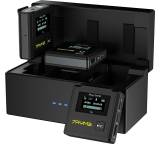
Gut
1,8
- Typ: Kamera-Mikrofon, Funkmikrofon, Handy-Mikrofon, Ansteckmikrofon
- Technologie: Kondensator
- Richtcharakteristik: Omnidirektional (Kugel)
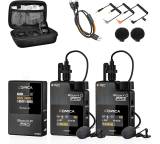
ohne Endnote
- Typ: Kamera-Mikrofon, Funkmikrofon, Handy-Mikrofon, Ansteckmikrofon
- Richtcharakteristik: Omnidirektional (Kugel)
- Anschluss: Klinke (3,5 mm), USB
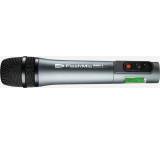
Sehr gut
1,0
- Technologie: Kondensator
- Richtcharakteristik: Stereo
- Anschluss: USB
Zum Produkt
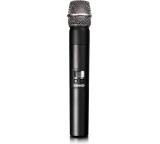
Sehr gut
1,0
- Typ: Funkmikrofon, Tischmikrofon, Gesangsmikrofon
- Technologie: Dynamisch
- Richtcharakteristik: Niere
Zum Produkt
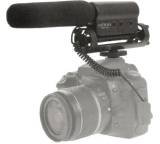
Gut
2,0
- Typ: Kamera-Mikrofon, Richtmikrofon
- Technologie: Kondensator
- Richtcharakteristik: Niere
Zum Produkt
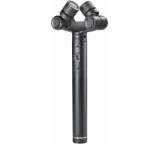
Sehr gut
1,1
- Typ: Kamera-Mikrofon
- Technologie: Elektret, Kondensator
- Richtcharakteristik: Stereo, Niere
Zum Produkt
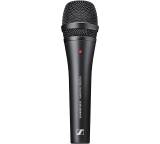
Sehr gut
1,3
- Typ: Gesangsmikrofon
- Technologie: Dynamisch
- Richtcharakteristik: Niere
Zum Produkt
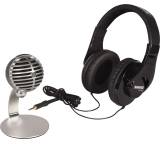
ohne Endnote
- Typ: Podcastmikrofon, Tischmikrofon
- Technologie: Kondensator
- Richtcharakteristik: Niere
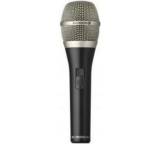
Sehr gut
1,5
- Typ: Gesangsmikrofon
- Technologie: Dynamisch
- Richtcharakteristik: Niere
Zum Produkt
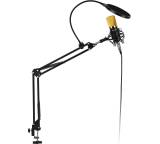
Gut
1,9
Aukey GD-G1
- Typ: Podcastmikrofon, Instrumentenmikrofon, Gesangsmikrofon
- Technologie: Kondensator
- Richtcharakteristik: Niere
Zum Produkt
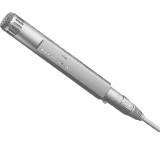
Sehr gut
1,5
- Typ: Instrumentenmikrofon
- Technologie: Kondensator
- Richtcharakteristik: Niere
Zum Produkt
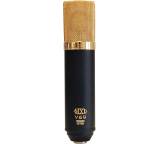
Gut
1,7
- Typ: Instrumentenmikrofon, Gesangsmikrofon
- Technologie: Kondensator
- Richtcharakteristik: Niere
Zum Produkt
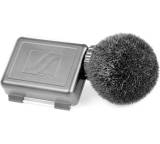
Sehr gut
1,5
- Typ: Kamera-Mikrofon
- Richtcharakteristik: Omnidirektional (Kugel)
- Anschluss: USB
Zum Produkt
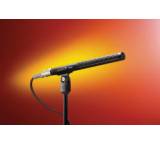
Sehr gut
1,0
- Typ: Richtmikrofon
- Technologie: Kondensator
- Richtcharakteristik: Stereo, Bidirektional (Acht), Niere
Zum Produkt
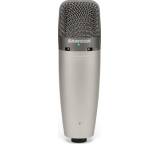
Gut
1,9
Samson C03U
- Typ: Instrumentenmikrofon, Gesangsmikrofon
- Technologie: Kondensator
- Anschluss: USB
Zum Produkt
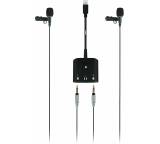
Gut
2,0
- Typ: Handy-Mikrofon, Ansteckmikrofon
- Technologie: Kondensator
- Richtcharakteristik: Omnidirektional (Kugel)
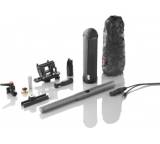
Sehr gut
1,5
Beyerdynamic MCE 86 S II Full Camera Kit
- Typ: Kamera-Mikrofon, Richtmikrofon
- Technologie: Elektret, Kondensator
- Richtcharakteristik: Direktional (Keule), Hyperniere
Zum Produkt
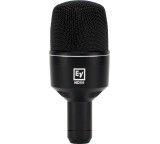
Sehr gut
1,2
- Typ: Instrumentenmikrofon
- Technologie: Dynamisch
- Richtcharakteristik: Superniere
Zum Produkt
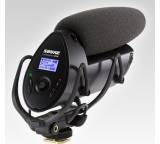
Sehr gut
1,3
- Typ: Kamera-Mikrofon, Richtmikrofon
- Technologie: Elektret, Kondensator
- Richtcharakteristik: Superniere, Direktional (Keule)
Zum Produkt
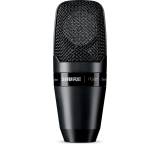
Sehr gut
1,4
- Typ: Instrumentenmikrofon, Gesangsmikrofon
- Technologie: Kondensator
- Richtcharakteristik: Niere
Zum Produkt
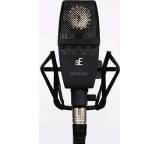
Sehr gut
1,5
- Typ: Instrumentenmikrofon, Gesangsmikrofon
- Technologie: Kondensator
- Richtcharakteristik: Superniere, Bidirektional (Acht), Niere, Omnidirektional (Kugel)
Zum Produkt
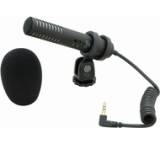
Befriedigend
2,7
- Typ: Kamera-Mikrofon
- Technologie: Kondensator
- Richtcharakteristik: Stereo, Niere
Zum Produkt
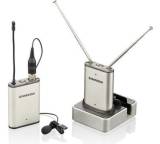
ohne Endnote
Samson AirLine Micro Wireless Camera System
- Typ: Kamera-Mikrofon
- Technologie: Kondensator
- Richtcharakteristik: Omnidirektional (Kugel)
Zum Produkt
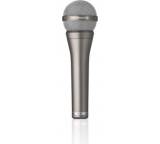
Sehr gut
1,3
- Typ: Gesangsmikrofon
- Technologie: Bändchen
- Richtcharakteristik: Niere
Zum Produkt
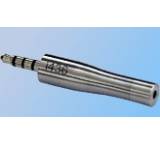
ohne Endnote
- Typ: Handy-Mikrofon
- Richtcharakteristik: Omnidirektional (Kugel)
- Anschluss: Klinke (3,5 mm)
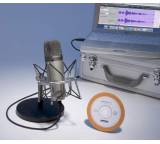
Gut
1,6
Samson C03U-Recording/Podcasting-Pak
- Typ: Gesangsmikrofon
- Technologie: Kondensator
- Anschluss: USB
Zum Produkt
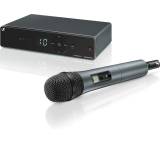
ohne Endnote
Sennheiser XSW1-835-E
- Typ: Funkmikrofon, Gesangsmikrofon
- Technologie: Dynamisch
- Richtcharakteristik: Niere
Zum Produkt
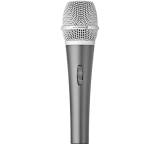
ohne Endnote
- Typ: Gesangsmikrofon
- Technologie: Dynamisch
- Richtcharakteristik: Superniere
Zum Produkt
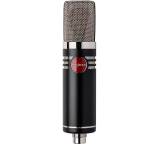
Gut
1,8
- Typ: Podcastmikrofon, Instrumentenmikrofon, Gesangsmikrofon
- Technologie: Röhre, Kondensator
- Richtcharakteristik: Bidirektional (Acht), Niere, Omnidirektional (Kugel)
Zum Produkt
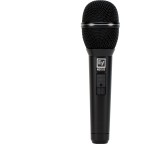
Sehr gut
1,0
- Typ: Gesangsmikrofon
- Technologie: Dynamisch
- Richtcharakteristik: Niere
Zum Produkt
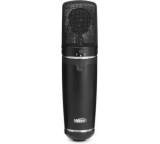
Sehr gut
1,0
- Typ: Instrumentenmikrofon, Gesangsmikrofon
- Technologie: Kondensator
- Richtcharakteristik: Bidirektional (Acht), Niere, Omnidirektional (Kugel)
Zum Produkt
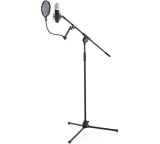
Gut
2,0
Thomann the t.bone SC 450 USB Podcast Bundle
- Typ: Gesangsmikrofon
- Technologie: Kondensator
- Richtcharakteristik: Breite Niere
Zum Produkt
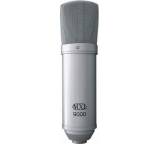
Gut
2,5
- Typ: Instrumentenmikrofon, Gesangsmikrofon
- Technologie: Röhre
- Richtcharakteristik: Niere
Zum Produkt
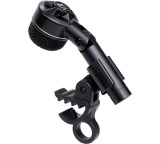
Sehr gut
1,2
- Typ: Instrumentenmikrofon
- Technologie: Dynamisch
- Richtcharakteristik: Niere
Zum Produkt
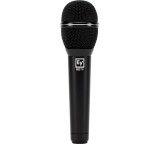
Sehr gut
1,3
- Typ: Gesangsmikrofon
- Technologie: Dynamisch
- Richtcharakteristik: Niere
Zum Produkt
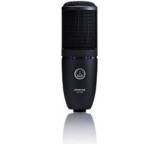
Gut
1,6
- Typ: Gesangsmikrofon
- Technologie: Kondensator
- Richtcharakteristik: Stereo, Niere
Zum Produkt
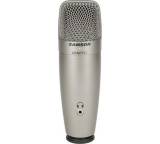
Gut
1,9
- Typ: Instrumentenmikrofon, Gesangsmikrofon
- Technologie: Kondensator
- Richtcharakteristik: Breite Niere
Zum Produkt
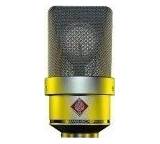
Sehr gut
1,0
Neumann TLM 103
- Typ: Gesangsmikrofon
Zum Produkt

ohne Endnote
Lewitt LCT 540 S
- Typ: Instrumentenmikrofon, Gesangsmikrofon
- Technologie: Kondensator
- Richtcharakteristik: Niere
Zum Produkt

Befriedigend
3,0
- Typ: Funkmikrofon, Handy-Mikrofon
- Technologie: Kondensator
- Richtcharakteristik: Omnidirektional (Kugel)
Zum Produkt
Tests
-

-
c't
- Ausgabe: 3/2025
- Erschienen: 01/2025
-
-

-
PC Magazin/PCgo
- Ausgabe: 4/2025
- Erschienen: 03/2025
- Seiten: 1
Mikrofon speziell für Gamer und Streamer?
Testbericht über 1 Mikrofonzum Test -
-

-
MAC LIFE
- Ausgabe: 11/2024
- Erschienen: 10/2024
- Seiten: 8
-












